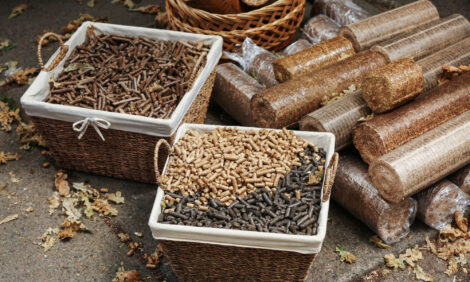



Argentine grains port workers request exports be suspended due to pandemic
A labor union representing Argentine grains port workers on Thursday asked the government to suspend exports, a move that would put upward pressure on world soy prices and hobble the country's main source of revenue as it seeks to avoid default.The URGARA union, which represents inspectors who check the quality of grains before they are loaded onto ships, said the coronavirus pandemic was severe enough to justify suspending port activities in the world's No. 1 exporter of soymeal livestock feed and No. 3 supplier of corn and raw soybeans, reported Reuters.
"We strongly request that all operations in ports be suspended for 15 days. In the current health emergency, we do not consider most port activities to be essential," URGARA chief Pablo Palacio said in an open letter to Argentine President Alberto Fernandez.
"Foreign trade should be considered only for activities that cannot be postponed, that is, as a true exception to the rule, not as an authorization to open the door to foreigners from countries considered risky," it said.
The government had no immediate comment on the letter.
A cut in grains flow from Argentina could shift global commodity trade flows as importers turn to rival suppliers like Brazil or the United States. Growers in Argentina's Pampas farm belt said they were against a port shutdown.
As of Thursday there were 502 confirmed cases of coronavirus in Argentina, with eight deaths.
The pandemic hits at the worst possible time for Argentina, as growers start harvesting this season's crops and the cash-strapped government scrambles to avoid defaulting on more than $100 billion in what it calls "unsustainable" debt.
"We need to take all precautions, but there's no way we can stop exporting. I hope the authorities can find a solution," said Santiago del Solar, a corn and soy farmer in the bread-basket province of Buenos Aires.
"If the government starts to halt cargo ships, soybean prices go up and government tax collection goes down," said fellow Buenos Aires grower David Hughes. "They have to try to convince port workers to keep doing their jobs, while taking necessary precautions."
Argentine growers are expected to harvest 50 million tonnes of corn this season and 52 million tonnes of soy, according to the Buenos Aires Grains Exchange.
Some 4.6 percent of soy area has been harvested so far, the exchange said in its weekly report on Thursday, with an average yield of 3.8 tonnes per hectare. Pigs, poultry and cattle are fed with Argentine soymeal around the world, with the country's export markets concentrated in Europe and Southeast Asia.
Early this week industry sources said the soymeal factories that dot the banks of Argentina's Parana River were getting only a fraction of their normal supply of raw soybeans because dozens municipal governments had banned grains trucks from driving through their jurisdictions.
The government sought to clear those bottlenecks on Wednesday by issuing a resolution saying people working in jobs related to foreign trade were exempt from the "preventive isolation" orders that have been applied throughout the country.










